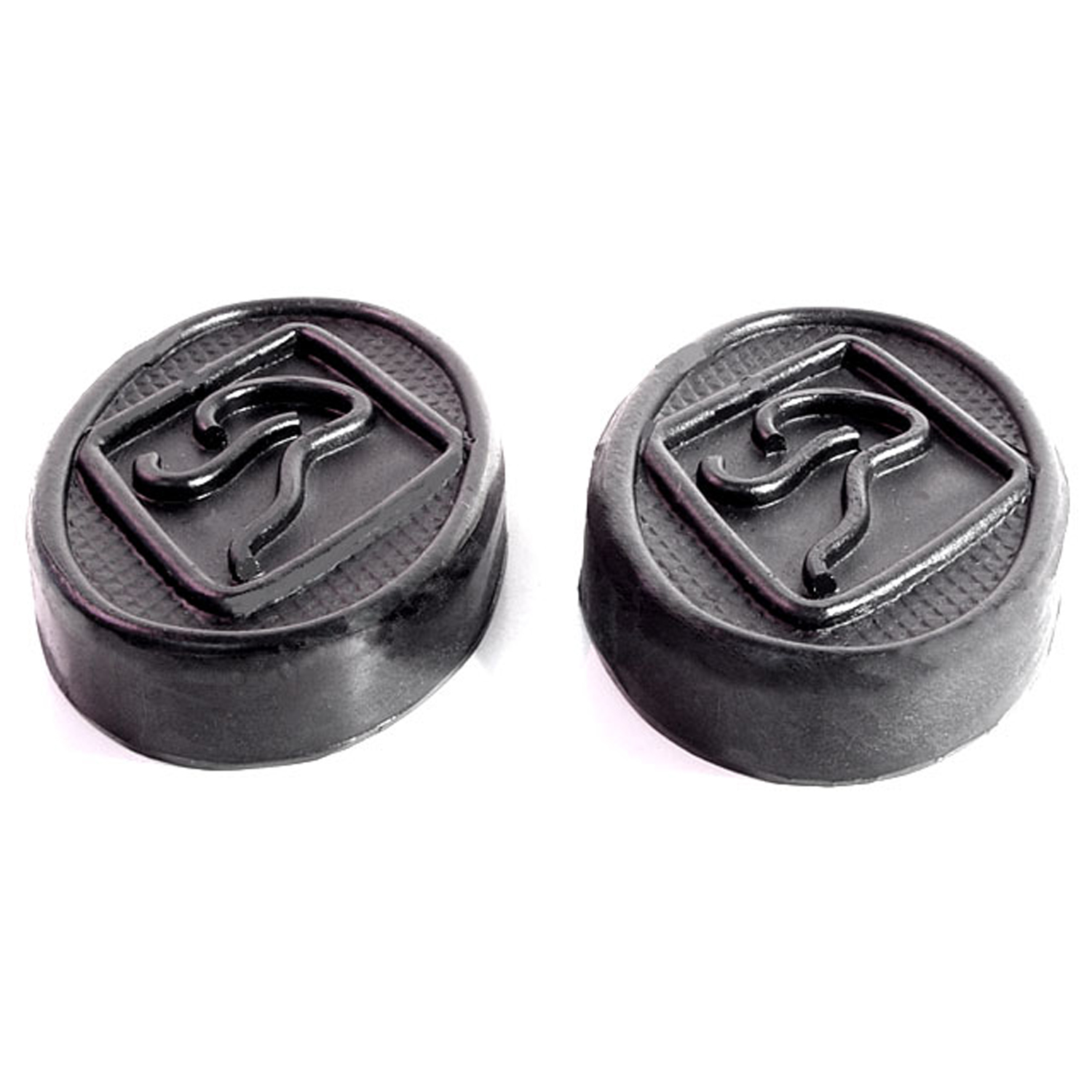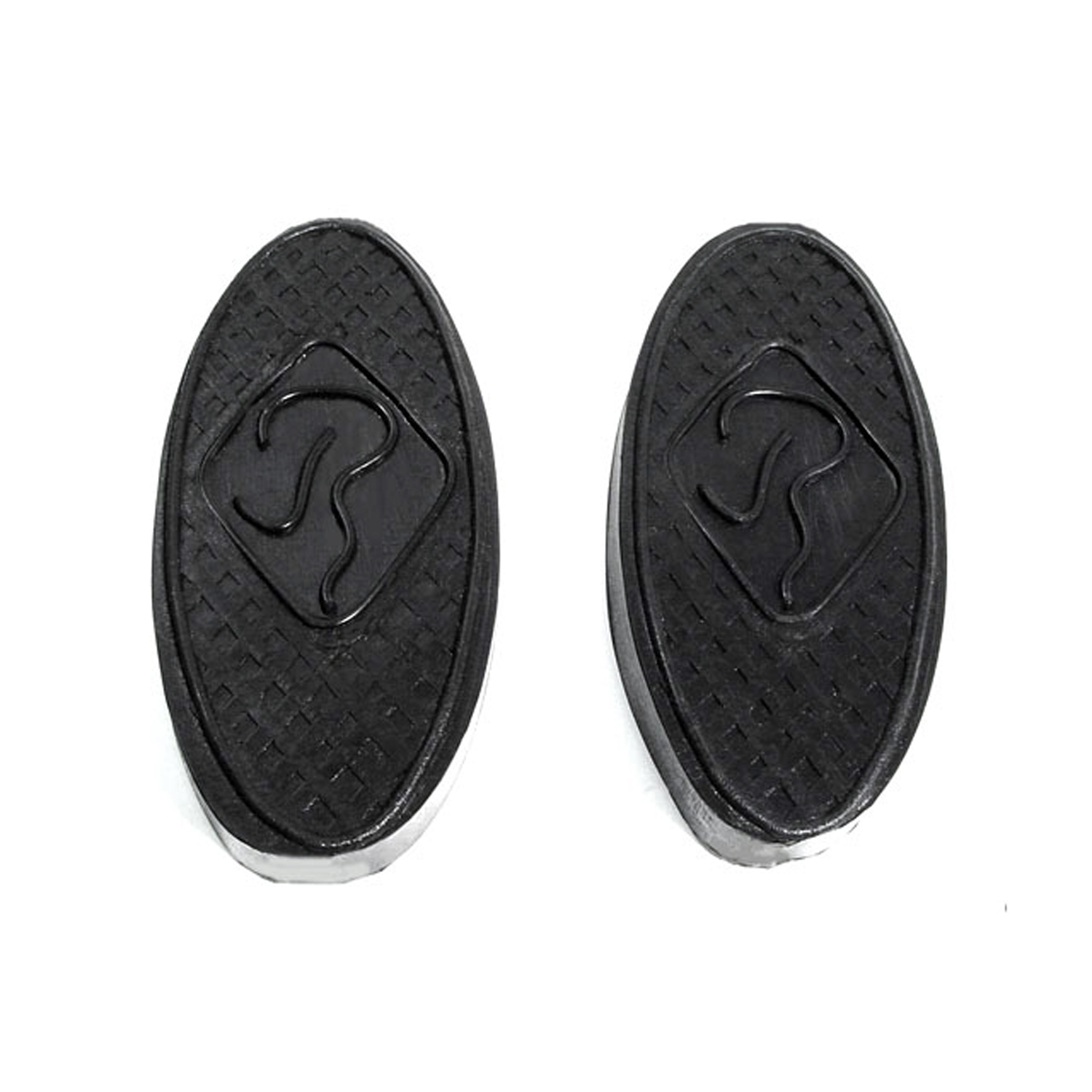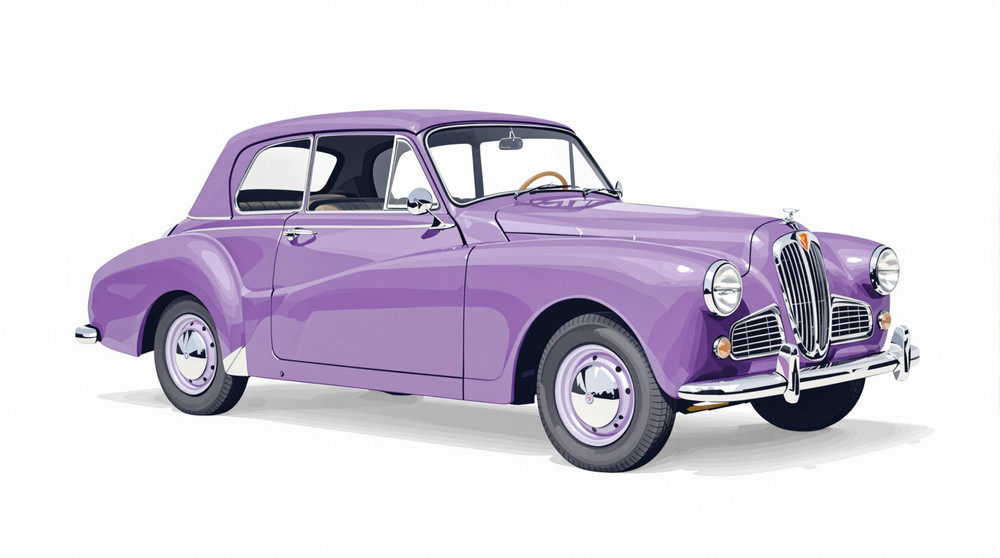Image of 1967 Riley Elf, Note: These illustrations use artistic license and may differ from actual historical models.
Performance Metrics
Fundamental Metrics
Emotional Appeal
MMP Rating
| Engine Specifications | |
|---|---|
| Engine: | 998 cc A-series I4 |
| Displacement: | 998 cc |
| Horsepower: | 38 hp |
| Torque: | 52 lb-ft |
| Compression Ratio: | 8.3:1 |
| Ignition System: | Distributor and coil |
| Cooling System: | Water-cooled |
| Performance Specifications | |
| 0-60 Time: | 19.5 seconds |
| 1/4 Mile Time: | Not available |
| Top Speed: | 77 mph |
| Transmission and Drive | |
| Drive Type: | Front-wheel drive |
| Transmission Type: | 4-speed manual |
| Fuel and Efficiency | |
| Fuel System Type: | Carburetor |
| MPG: | 35-40 mpg |
| Dimensions and Brakes | |
| Brakes: | Drum brakes front and rear |
| Wheelbase: | 80.2 inches |
| Weight: | 1,632 lbs |
Note: Specifications for classic cars are given to the best of our ability, considering the limited and variant data available.
Unveiling the Charm of the 1967 Riley Elf
The 1967 Riley Elf is a testament to classic British automotive design, a small car with a grand presence. Born from the collaboration between British Motor Corporation (BMC) and Riley, one of the oldest British car brands, this compact saloon was more than just a vehicle; it was a statement of sophistication and style. At a time when the world was riding the waves of cultural revolution, the Riley Elf carved its niche as an emblem of British elegance. One might not expect such a petite car to have a royal connection, but indeed it did, as it was reported that Queen Elizabeth II once took a spin in an Elf, adding to its unique cachet.
Design and Innovation
The exterior styling of the 1967 Riley Elf is distinctive, with its pronounced boot giving it an almost regal bearing in contrast to its Mini cousins. The front grille, adorned with the classic Riley badge, exudes an air of heritage. Inside, passengers are greeted by an interior that prioritizes comfort and class over sheer space. Rich leather and polished wood veneers were often used, reflecting the quality materials typical of higher-end British cars of that era. Technologically, the Elf was ahead of many contemporaries with features like wind-up windows and fresh-air heaters. Color options ranged from stately hues to more vibrant tones, with shades like "Almond Green" and "Damask Red" being popular choices. The most iconic body style is undoubtedly the two-door saloon, which perfectly encapsulated the blend of practicality and prestige.
Historical Significance
The Riley Elf's impact on automotive design was subtle yet significant. It set itself apart with its luxury mini-car niche—a concept that few other brands dared to explore at that time. Its lasting influence can be seen in how today's manufacturers strive to infuse premium elements into compact designs.
Performance and Handling
Underneath its polished exterior, the 1967 Riley Elf was capable of modest performance metrics by today's standards but was quite zippy for its time. With top speeds around 70 mph and acceleration from 0-60 mph in about 29 seconds, it wasn't going to win any drag races, yet it offered a driving experience full of character. The handling was nimble; drivers could feel every nuance of the road beneath them, making for an engaging drive that modern vehicles often fail to deliver.
Ownership Experience
The Elf was versatile enough to serve as a daily driver or as a cherished show car. Its reliability was commendable for the era, though parts can be scarce today. Maintenance requires some know-how but is generally straightforward for those familiar with classic Minis.
Fun Facts
A fun tidbit about the Riley Elf is that despite its exclusive image, it shared many mechanical parts with the ubiquitous Mini, making some repairs easier than one might expect. While not known for breaking records in speed or sales, its endurance as a beloved classic speaks volumes. Criticisms often centered around its cramped interior compared to larger cars of the time.
Collector's Information
Today's collector might find a well-preserved 1967 Riley Elf valued anywhere from $10,000 to $25,000 depending on condition and originality. Production numbers were relatively low compared to mainstream models; it's estimated that around 30,000 Elfs were produced throughout its entire run from 1961-1969. As for appreciation value – these charming classics have seen a steady increase over recent years as enthusiasts seek out unique pieces of motoring history.
Conclusion
The 1967 Riley Elf stands as an icon of British automotive craftsmanship—a small package delivering grandeur and charm in equal measure. Its unique blend of luxury and compactness continues to captivate classic car enthusiasts around the world. Whether nestled in a private collection or gracing the roads on sunny weekends, the Elf remains a delightful slice of motoring heritage worth cherishing.
1967 Riley Elf Catalog of Parts
 1967 Riley ELF Clutch and Brake Pedal Pads. 2-1/4" wide X 3-1/2" long-CB 49Clutch and Brake Pedal Pads. 2-1/4" wide X 3-1/2" long. Pair
1967 Riley ELF Clutch and Brake Pedal Pads. 2-1/4" wide X 3-1/2" long-CB 49Clutch and Brake Pedal Pads. 2-1/4" wide X 3-1/2" long. Pair 1967 Riley ELF Clutch and Brake Pedal Pads. 2-1/4" wide X 4-7/8" long-CB 50Clutch and Brake Pedal Pads. 2-1/4" wide X 4-7/8" long. Pair
1967 Riley ELF Clutch and Brake Pedal Pads. 2-1/4" wide X 4-7/8" long-CB 50Clutch and Brake Pedal Pads. 2-1/4" wide X 4-7/8" long. PairWhy Choose Metro?
For over 100 years, Metro Moulded Parts has been the pinnacle of quality in classic car restoration parts. Our commitment to precision and authenticity in every component ensures a perfect fit and an OEM-level appearance.
- Expert Craftsmanship & Quality: Each part is a testament to our dedication to reliability and perfection, crafted from original designs and thoroughly tested.
- Advanced Technology: We use cutting-edge techniques to create flawless, long-lasting parts that surpass others in performance.
- SuperSoft Sponge – The Ultimate Door Seal: Not only are our door seals 30% softer than competitors', but they're also guaranteed to never leak. They effectively reduce wind and road noise, enhancing your classic car's comfort and driving experience.
- Proudly American: Our parts are a product of American craftsmanship, made in the USA with a spirit of excellence and heritage.
- Unrivaled Warranty: We back our products with a 30-year industry-leading warranty, a testament to our confidence in their quality.
Join us in preserving the legacy of classic cars with parts that are crafted for perfection, not just made.

